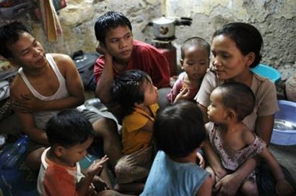More fighting feared in Myanmar
BANGKOK: Fighting between Myanmar's junta and ethnic rebel groups in northeastern Myanmar was expected to escalate after thousands of refugees fled to the Chinese border, activists said Thursday.
The exodus from Kokang in Shan state began on August 8 after Myanmar's junta deployed troops in the mainly ethnic Chinese region, said the US Campaign for Burma (USCB), which uses Myanmar's former name.
The USCB said "tens of thousands of ethnic people" had fled the region as China's Chongqing Evening Post reported that up to 10,000 refugees had arrived in the Chinese border town of Nansan in southwestern Yunnan province.
The exodus began after Myanmar sent dozens of military police to crack down on a gun-repair factory suspected of being a front for drugs production, sparking fear among locals, the report said.
Although the newspaper said the situation had eased, with China helping to repatriate the refugees, the Washington-based USCB warned of more confrontation after tensions "escalated to a dangerous level" in recent days.
The group said a 20-year ceasefire between Kokang rebels and Myanmar's government now seemed to be "effectively broken."
It also said the Kokang forces were divided, with one faction joining the government's troops occupying Laogai, capital of the Kogang region.
The other faction, which refused to obey the junta's order to place its troops under army control, had withdrawn from Laogai to take up positions in surrounding mountains.
"More confrontation and military encounters are expected in the following days and thousands of villagers are fleeing to the China-Burma border to avoid the war," it said.
Myanmar, under military rule since 1962, has signed ceasefires with 17 ethnic armed groups.
Rights groups have accused the military regime of committing crimes against humanity by targeting civilians during offensives against ethnic rebels.
Tens of thousands of refugees live along Thailand's border with Myanmar, most of whom have fled army crackdowns in the east.
The USCB said it now expected the junta to employ similar strategies to "wipe out ethnic resistance" in northern Myanmar, resulting in more refugees and also more sexual violence in the region.
It added that the junta's chance of moving forward with its plan for elections in 2010 were "very thin," as it had failed to disarm ethnic groups and make them join in the electoral process.
A border official in Nansan, who asked not to be named, confirmed that "many" Myanmar nationals had arrived in China in recent weeks, but could not give a precise figure.
He said local and provincial authorities had set up an office to deal with the influx of refugees, without elaborating.
Earlier this month, Human Rights Watch (HRW) called on Myanmar's junta to immediately end attacks against civilians after thousands were displaced in Shan state.
It said that the Myanmar army had reportedly deployed battalions to clear civilians from large areas in central Shan between July 27 and August 1, burning down more than 500 houses as they attacked 39 villages in the area.
HRW said it thought the operation was part of an intensified campaign against Shan State Army-South, an insurgent group that operates in the area.






